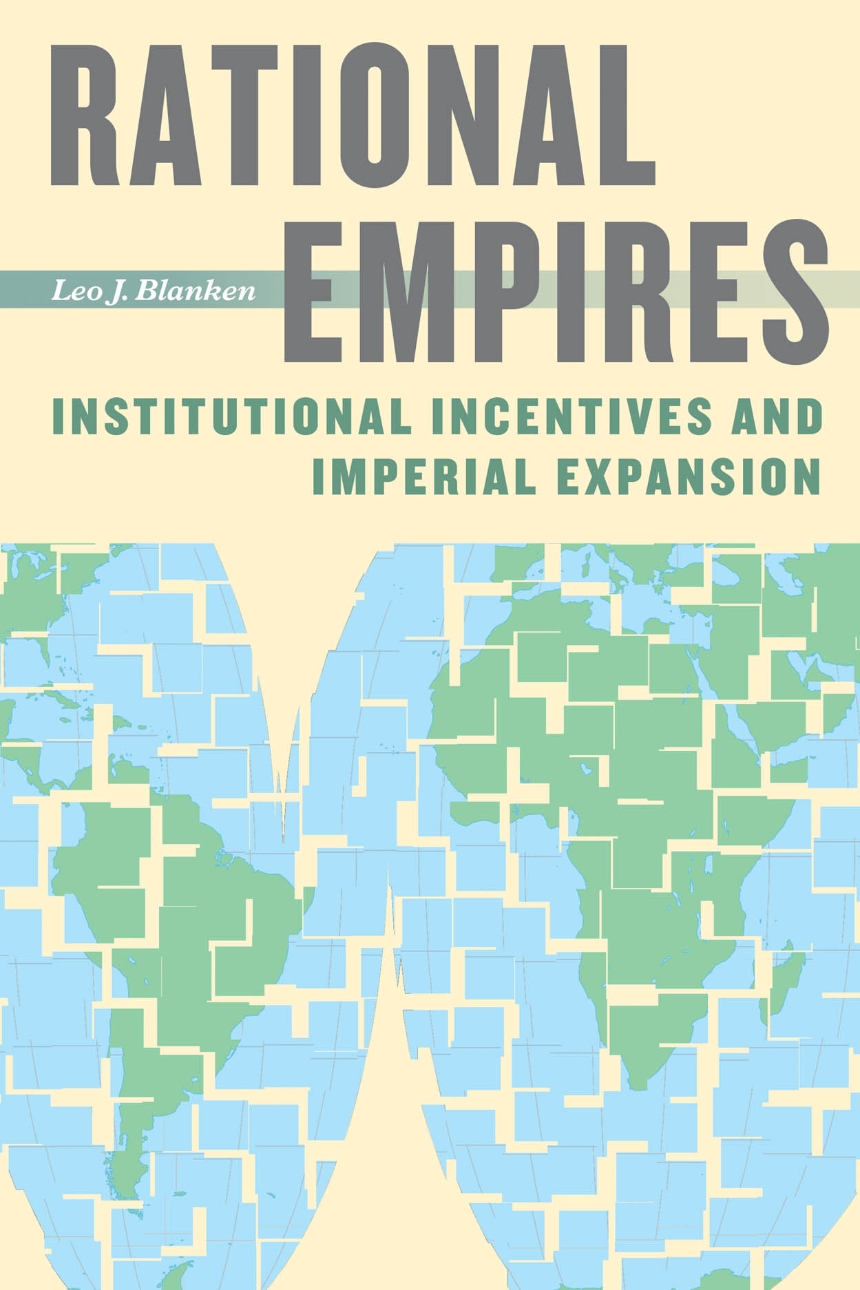Rational Empires
Institutional Incentives and Imperial Expansion
The nineteenth century marked the high point of imperialism, when tsarist Russia expanded to the Pacific and the sun was said never to set on the British Empire. Imperialism remains a perennial issue in international relations today, and nowhere is this more evident than in the intensifying competition for global resources.
Leo J. Blanken explains imperialism through an analysis of the institutions of both the expanding state and its targets of conquest. While democratic states favoring free trade generally resort to imperialism only to preempt aggressive rivals—or when they have reason to believe another state’s political institutions will not hold up when making bargains—authoritarian states tend toward imperialism because they don’t stand to benefit from free trade. The result is three distinct strategies toward imperialism: actors fighting over territory, actors peaceably dividing territory among themselves, and actors refraining from seizing territory altogether. Blanken examines these dynamics through three case studies: the scramble for Africa, the unequal treaties imposed on Qing Dynasty China, and the evolution of Britain’s imperial policy in India. By separating out the different types of imperialism, Blanken provides insight into its sources, as well as the potential implications of increased competition in the current international arena.
218 pages | 3 halftones, 1 line drawing, 4 tables | 6 x 9 | © 2012
Geography: Social and Political Geography
Political Science: Diplomacy, Foreign Policy, and International Relations
Sociology: General Sociology
Reviews
Table of Contents
Acknowledgments
1. The Enduring Puzzles of Formal Imperialism
2. An Institutional Theory of Formal Imperialism
3. The Curiously Courteous Scramble: The Case of Tropical Africa
4. Failing to Carve the Dragon: The Case of Qing Dynasty China
5. From Plunder to Public Goods: The Case of British India
6. Conclusions: The Past and Future of Rational Empires
Appendix: An Institutional Model of Imperialism
Notes
Works Cited
Index